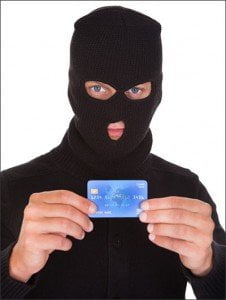Credit and debit card fraud in California
You don’t have to be a black-suited bad guy to get caught up in debit or credit card fraud. California Penal Code sections 484e-j define a range of criminal offenses that apply to fraudulent activities involving debit and credit cards, as well as other types of financial access cards – such as gift cards that can be used to make purchases from retail stores.

If you think you or someone you know is involved in any type of activity with debt or credit cards that falls into a grey area, it’s important to understand that the penalties for debit and credit card fraud can be stiff.
Under California Penal Code Sections 484e-j, any type of fraudulent activity involving credit, debit, or other financial access cards is illegal. Fraudulent activity can include using another person’s card without their permission, identity theft, or any other type of activity where the defendant has the intent to deceive another — such as a merchant — with the goal of gaining something at the expense of a victim.
In order to be convicted of violating 484e-j PC, the defendant need not have used the card in question. The defendant simply needs to be in possession of the card with the intent to use it.
Several sections of the Penal Code apply to credit/debit card fraud:
- 484(e) PC: stolen credit cards
Acquiring, selling, purchasing, transferring, or otherwise possessing a card or sensitive card information of another person without their consent.
- 484f PC: forging credit card information
Creating a fake card, altering a legitimate card, or signing another’s name without their permission.
- 484g PC: fraudulent use of a credit card or account
Knowingly using a fake, forged, stolen, expired, or otherwise invalid card to make a purchase.
- 484h PC: retailer credit card fraud
A merchant knowingly accepting payment for goods with a fake, forged, stolen, expired, or otherwise invalid card, or attempting to receive payment for a particular transaction with false evidence.
- 484i PC: counterfeiting credit cards
Possession of equipment to manufacture fraudulent or phony credit cards, or actually manufacturing, possessing, and/or trafficking counterfeit cards.
- 484j PC: publishing credit card information
Knowingly distributing or communicating sensitive credit/debit card information — such as account numbers, PIN numbers, or usernames and passwords — with the intent to defraud others.
Elements of the crime of credit/debit card fraud
All of the offenses defined by 484e-j PC have two common elements:
- The knowing and unlawful possession of a credit/debit card or someone else’s sensitive credit/debit card information.
- The intent to defraud another.
In order for the prosecutor to secure a guilty verdict at trial on a charge of credit/debit card fraud, additional elements may need to be proved, depending on the specific section under which the defendant is charged.
Criminal penalties
Criminal punishments for violating any of these sections vary depending upon the circumstances of the offense and the defendant’s prior criminal history, if any. Most cases of credit/debit card fraud are punished similar to forgery, grand theft, or petty theft.
A felony conviction is punishable by 16 months to three years in prison and a fine not to exceed $10,000. A misdemeanor conviction is punishable by six months to one year in county jail and a fine of up to $1,000.
- 484e PC and 484f PC are wobblers, and can be charged as a misdemeanor or a felony.
- With respect to 484g PC and 484h PC, if the value of the stolen funds is $950 or less, the offense is a misdemeanor and is treated like petty theft. An offense involving an amount greater than $950 is a felony and is treated as felony grand theft.
- 484i PC is a wobbler. Possession of a blank card (which can be used for counterfeiting) is a misdemeanor, while actually counterfeiting or altering cards, or being in possession of counterfeiting equipment is usually charged as a felony.
- 484j PC is a misdemeanor.
Legal defenses for credit/debit card fraud
Because an allegation of credit/debit card fraud can cover a wide range of scenarios, an effective legal defense must take the facts of the alleged crime into account. Only a qualified and licensed criminal defense attorney can provide legal advice. Among the most common legal defenses to credit/debit card fraud in California are:
- Lack of intent to defraud
- Mistaken identity
- Insufficient evidence









